Argentina’s research community is under immense strain as public university budgets are starved by new president Javier Milei, a hard-right populist who took office in December. Initial concerns about Milei, expressed by many in Argentina’s scientific community before and after his election, appear to have been justified, but there are some signs that he may be receptive to scientists’ message and that the situation might improve.
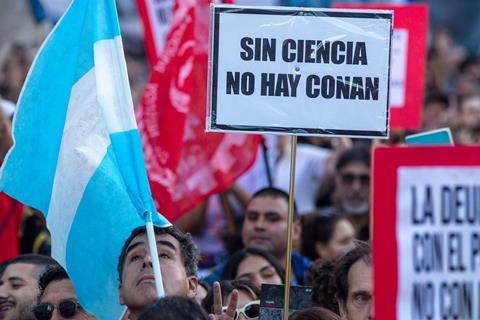
During the presidential campaign, Milei set off alarm bells in the scientific community by promising to eliminate the country’s science ministry and dissolve the National Scientific and Technical Research Council (Conicet) that funds salaries and fellowships at Argentinian universities. Milei also made it clear from the outset that he wants to privatise scientific research in Argentina.
After less than six months in office, Milei has demoted the country’s science ministry and frozen funding for Conicet, as well as public universities, at their 2023 levels. Moreover, only about 1% of the country’s science and technology budget was spent in the first five months of this new administration and that is on top of a record annual inflation rate of nearly 300%.
‘All of the nightmares about Milei turned out to be true,’ states Alberto Kornblihtt, a molecular biologist and emeritus professor at the University of Buenos Aires.
The annual budget of Argentina’s newly demoted science ministry is $80 million (£63 million) and so far Milei’s government has spent roughly $1 million, according to Emiliano Cortés, a nanomaterials expert based at the University of Munich in Germany, who was born and educated in Argentina.
Also, the agency that funds research grants in Argentina is also frozen. ‘No money is coming out from there,’ explains Gerardo Burton, an emeritus chemistry professor at the University of Buenos Aires.
Fellowships slashed and delayed
‘Now, the situation is mostly as we feared – new fellowships for PhD candidates were cut down by half and they were delayed,’ Burton says. ‘So those who were expecting to start their PhDs last April, those who got the fellowships then, will start supposedly in August.’
There is concern that many of these young Argentinean researchers will now decide to go abroad for their studies and work. ‘Some of these students will leave because they cannot stay several months doing nothing,’ Burton warns.
In addition, the salaries of researchers and funding for their research grants are worth much less than when Milei took power, thanks to the country’s soaring inflation. ‘There are no new research grants coming out and for the old grants some of them are not being paid and those that have been paid are allocated in pesos,’ explains Cortés.
María del Pilar Buera, an organic chemist at the University of Buenos Aires and senior researcher at Conicet, says that the current budgetary uncertainty means that it is nearly impossible to plan for travel to attend research conferences or engage in scientific exchanges.
The peso problem
Since Milei took the helm, the salaries of researchers in Argentina have fallen by around 30% of their value after accounting for inflation, according to Cortés. ‘Prices in the economy have increased while the salaries have decreased, so this puts a lot of pressure on researchers to leave the country.’
Making matters worse is the fact that research grants are paid in Argentinian pesos. The dramatic devaluation of the currency means that the buying power for things like equipment and reagents has shrunk significantly.
‘We haven’t received any new payments for our grants, so we are using what we had left over from the previous year and that’s a problem because the prices for everything are shooting up,’ Burton tells Chemistry World. ‘These projects were calculated with a much lower exchange rate and now most of our supplies come from abroad and they have to be paid for in US dollars or euros, so we need at least three or four times more pesos than we needed last year,’ he continues. ‘It’s impossible for us to buy scientific equipment now and even if we want to buy reagents it is all multiplied by three or four, but we still have the same money and no new money is coming in.’
Burton can’t replenish the reagents in his lab right now and they are rapidly being depleted. ‘If we need something urgently then that’s a problem – sometimes we would like to run a certain reaction, but we can’t do it so we look for a cheaper alternative or for a way that uses the supplies that we have, but that, of course, is not ideal,’ he says. Some of the reagents in his lab will last for a year, but others are expected to only last for a few months.
Situation critical
The overall picture is bleak for Argentina’s scientists and early career researchers are in the most difficult position, according to Valeria Levi, a chemist and deputy dean of the School of Exact and Natural Sciences at the University of Buenos Aires. ‘Our young researchers, recent PhD candidates with doctorates, are in the worst situation,’ she says, emphasising that the number of fellowships awarded by Conicet has shrunk from around 1300 to 600, which limits their opportunities to begin research careers.
Many of Argentina’s public universities, which together carry out an estimated 95% of all the major research in the country, are on the verge of shutting down, Levi says. ‘The situation is critical; everything is at risk,’ she warns. ‘If a big [piece of] equipment fails, we have to stop using it, as there is no money for buying small replacement parts.’ In addition, she cautions, cell lines and other research that required years of work could be lost because researchers do not have money to pay for liquid nitrogen to keep them frozen.
When Cortés left Argentina a decade ago to do his postdoctoral studies abroad, he planned to return to Argentina within a few years. After spending some years in the UK, Cortés was offered a professorship in Germany and decided to stay there indefinitely, as conditions had worsened in his home country. But he still hopes to return at some point, when things get better. ‘I’m always monitoring the situation from abroad,’ Cortés says.
In response to Milei’s actions since becoming president, there has been a backlash at universities. In April, it is estimated that more than a million people took part in marches and protests at universities across the country to defend public education and research.
The Milei government seems to be listening now and announced on 15 May that the University of Buenos Aires’ operational budget would be increased 300% to account for inflation. These additional funds will go towards operating expenses like teaching materials and building maintenance, not towards the salaries of professors and researchers. Government authorities are currently discussing the possibility of making similar arrangements for other public universities.
‘We did not get the money yet [at the University of Buenos Aires] and it is not clear when we are going to receive it,’ Levi says, ‘but this would allow us to improve our actual condition a little.’





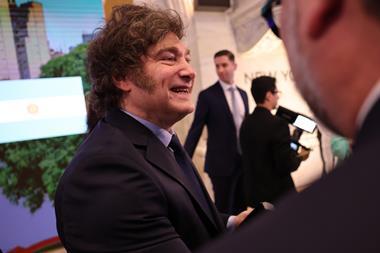
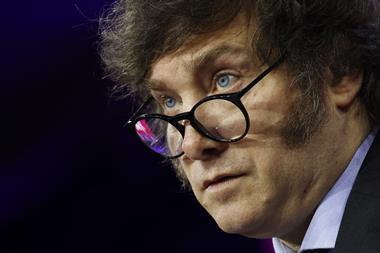
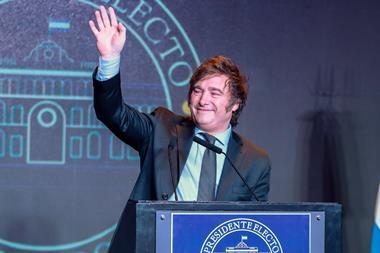
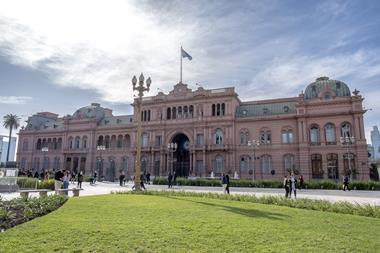
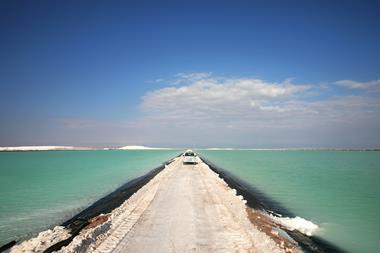
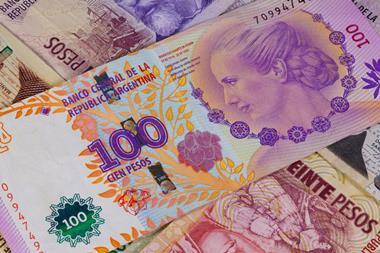
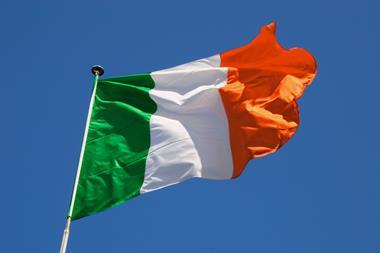





No comments yet